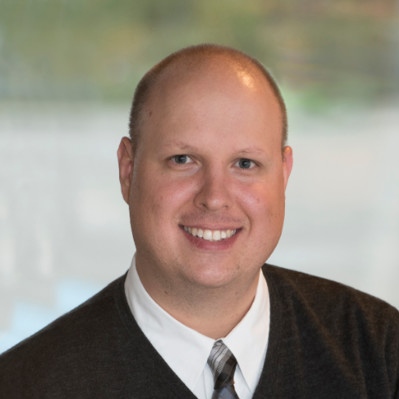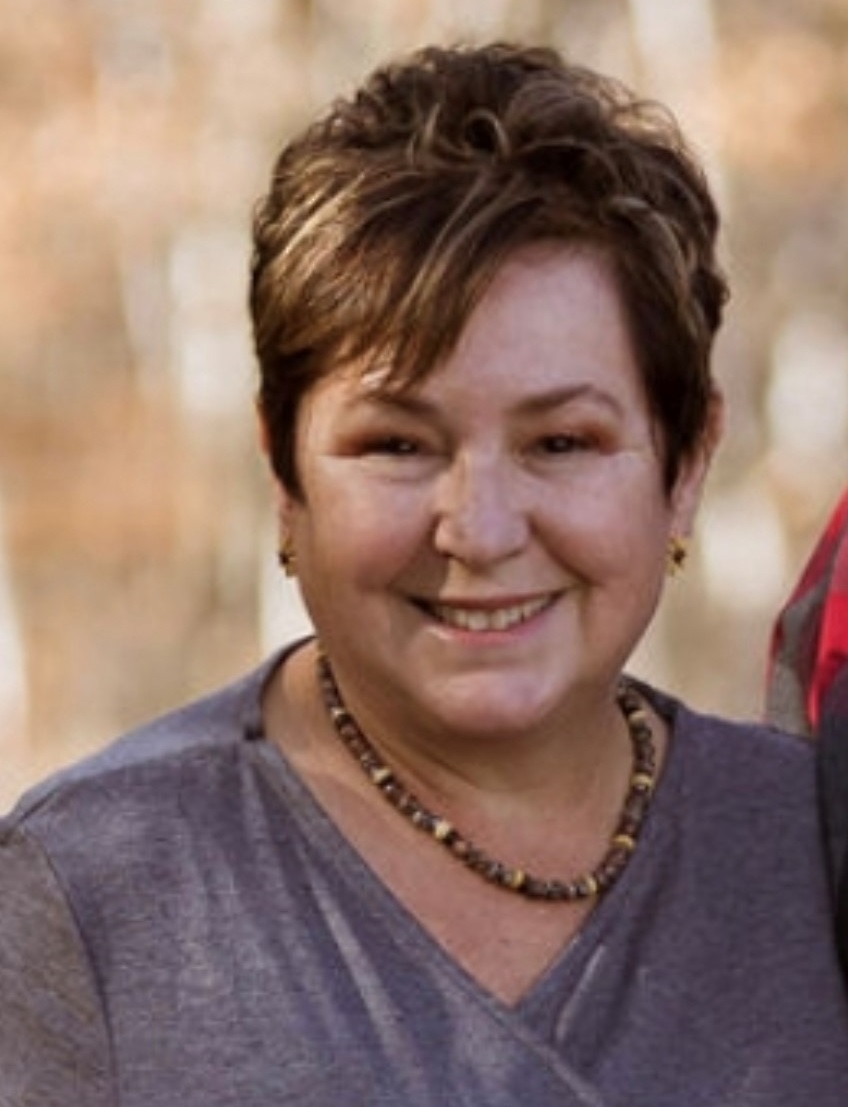An Interview with Laura LePine
An Interview with Laura LePine
By: Rob Kirsic
December 2023
Laura LePine is the Director of Community Services with the County of Renfrew. Passionate about people and services, Laura has been a strong voice for those in need. Removing barriers and creating easy spaces for people to feel comfortable and valued is what she is known for in her work and in her community. Ensuring that the residents have a clear pathway to services, and staff feel valued in the work they do, has been the focus of her work throughout her career. She is a no-nonsense kind of person who speaks clearly and without hesitation when it comes to any form of advocacy.
She is also one of the recipients of the 2023 OMSSA Patti Moore Human Services Integration Award. OMSSA sat down with Laura for an interview to discuss her work and experiences over her career within the County of Renfrew and various human services topics.
This interview has been edited and condensed.
OMSSA: Human services integration can be a challenge but also offer opportunities for better service delivery and collaboration. In your experience, what should up-and-coming human services leaders across Ontario know and think about when it comes to human service integration and delivery?
Laura LePine (LL): I've been part of human services for 25 years, and I remember many years ago integration being talked about. I remember at the time there were so many siloed programs, and even within programs there were silos, and the whole concept of human service integration was to do work that will make outcomes easier and better.
In 2015, I had an eye opening experience. It happened to be with some OMSSA training down in Toronto led by JP Gedeon who delivered leadership training. In that training he helped me through the questions he asked, and it was very personal for me. If I am looking at human service integration, what about it is so attractive? What makes it so interesting? And I realized, because that was a fundamental question, that this is an opportunity to make things better. It's an opportunity to remove silos. It was really important to find my passion in it.
For me it was about how do we deliver services that is putting the client, or resident, front and center, and what does that look like? And when I reframe it, I realized, okay, human service integration has a role to play in better service to clients and so my journey really began at that point - what is the client experience like? What is it great at? And what is it not so great at? And how do we make those changes?
Anybody who comes through the door seeking child care, housing, or homelessness services, or Ontario Works (OW), has a story. That story is very personal and painful. Suddenly, all the doors that are in front of them becomes very overwhelming.

Leaders need to take a strong look at the people that work within their organization. Get to know people, their strengths, and what their issues are. We can convince those that we report to if we have the passion, because we are the experts and they rely on us to give them good data. They rely on us to give them good rationales, so we have that. It is the staff that can make or break things, and I think it becomes more about spending time getting to know your staff as a leader. You need to get to know the very first-line, as well as the ones closest to you, and all steps in between to get to know what the challenges and issues are.
Integration is like a ball, it's not a line. It grows as it rolls, and integration is not a start with an endpoint. We brought the staff in and we visioned together, and we envisioned this work environment that had lots of organizational structural changes. What we didn't expect or envision is that those working near us were looking at us too, and all of a sudden our whole corporation underwent integration work that was really unplanned. We've got community partners out there doing that and some of them say, well it’s what you were doing that led us to do that.
That momentum is very addictive. And when things go well, or when things don't go well, people see and notice. That is an unplanned thing that leaders need to keep their eye on, too, is that as they are looking at making changes or enhancing the integration work, that's in place, that it's permeating everywhere around them.
The planning that took place around the County Administrative Building went back to when services were downloaded. The Director and Admin Assistant were housed here because it was an existing office. When Ontario Works came in they opened their offices offsite by renting places strategically throughout the County. When community housing came, some joined the OW locations and some did not, and the same with child care. The use of space here and in other locations was not great and provided many challenges. A Pembroke and area property study was done with a recommendation to have the County bring services in-house. That was the County Administrative Building change. Ontario Works, Community Housing and Child Care in Pembroke moved from their various locations in Pembroke into the County Administration building.
I bring this up because we have human service integration going on and I’m a member of the senior leadership team. I'm meeting with other directors and we are doing stuff differently. We are meeting together; we are talking about challenges and opportunities. As we talk about moving social services into the County Administrative Building, things started to change. Public Works and Engineering, and Property and Development, started to see synergies so they started to look at what they can do together. This led to other integration opportunities across the corporation.
That's an example of how that synergy and that integration work happens. It was unplanned, but this is what happens when integration work goes on.
OMSSA: As a leader, and based on your experience, what can human service leaders and front-line staff do to embrace innovation and out-of-the-box thinking for their teams and clients?

Years ago, OMSSA ran some training and they had partnered with the Ministry. We had the opportunity to learn about LGBTQ+ and about violence against women, along with other topics. There was also an Indigenous piece. They talked about how in Indigenous cultures, you always offer water when meeting or greeting someone. That was a learning opportunity for us. When we came back to our offices, we bought water coolers and little fridges and put water everywhere so that people could have access to beverages, including water or juice.
In a meeting, or in any kind of planning, food is central to some of the most primal feelings of comfort. It's amazing what it does for kids when you bring out food and ask their parents if you can offer it to them. So I always think that is a piece of information that should not be lost on anybody. If you want to embrace innovation and out-of-the-box thinking, whether it is a meeting or an event, bring food.
Another tool that leaders could benefit from is to get a message out by having somebody else deliver it. I don't think I am in the position I am in because I am smarter than anybody or that I have more educational criteria or credentials. I have to live what I say, so I can't have all the answers. I can't be the launching pad for everything, even though I may be in some ways. What I am doing is collecting ideas from other people, and having somebody else deliver it gives that break from staff hearing it from the same person and voice.
OMSSA: As Director of Human Services for the County of Renfrew, is there something you are noticing in your community that OMSSA Members should know about and might help them in their roles and responsibilities?

Many of our clients/ residents may prefer to leave voicemail after hours. They prefer to send texts. They prefer to make comments on social media. They prefer to communicate that way, and I think that is important. I think we need to, as a field, do more to be responsive to that.
We cannot overlook the enormous impact that the housing world has on all of us. Whether you are in childcare, paramedic services, in direct line social services, finance and admin, it doesn't matter where you are. The housing and homelessness situation is such that it needs to be on everyone's agenda.
For example, we were at a meeting recently looking at our asset management plan as housing is part of our portfolio. We often speak to housing and homelessness with all that we're doing. As at many meetings I attend where we speak about housing, I had a person say to me that they have somebody in their life that is struggling right now with trying to get on a wait list for a program. It resonates that it is everywhere and it is impacting staff and the community. Housing and homelessness need to be a topic for every department and embedded within their roles and responsibilities.
OMSSA: The County of Renfrew has been involved with the declaration of intimate partner violence as an epidemic. Several municipalities have declared this an epidemic. Can you talk a little bit about your experience here and why Members should be invested in declaring this an epidemic in their community?
LL: Intimate Partner Violence is very close to home here and that's something we just can't escape. We knew the three women that were killed (source: https://www.cbc.ca/news/canada/ottawa/coroner-s-inquest-carol-culleton-anastasia-kuzyk-nathalie-warmerdam-deaths-intimate-partner-violence-renfrew-1.6478618). Our staff knew them and we had the offender in some of our programs as well.
Intimate Partner Violence is something all communities need to declare as an epidemic, but not stop there. It's very important to look at enhancing service delivery at every entry point. What is known to those who work in the field is not known to those who don't work in the field.
Declaring intimate partner violence as an epidemic is not enough. There must be more work done, safer places for people, and identification of systemic barriers. People need to read the 86 recommendations from the inquest (source: https://lukesplace.ca/wp-content/uploads/2022/06/CKW-Inquest-Verdict-Recommendations-SIGNED_Redacted.pdf).
It is critical that everybody have an approach at their service that will trigger responses most services don't know that they can be in the middle of a response. I think all professions, all service agencies, need to have general training and understanding of what intimate partner violence looks like and how to recognize some of the signs of it so that they can start fast tracking and helping people. We know there are going to be many attempts for people before they break that cycle.
It's not different when you're dealing with the human trafficking world either, and that's another area that is really growing. As the community becomes better at identifying human trafficking situations, the human traffickers get better at finding new opportunities once again. Shelters and encampments have become ripe for human trafficking and other activities that we sometimes forget is happening.
Here I am working in the field but I did not know to what extent that the justice system protects the perpetrators. I think we all need to learn how the system work. How does it work when somebody's on probation or parole? What happens if we become aware of something? That was the failing that took place here as the inquest notes.
We all have a responsibility to protect and identify and help those who are experiencing an episode of intimate partner of violence or gender-based violence for that matter. Because then we can get into the LGBTQ+ conversation.
I think it is also an important trend because there is greater visibility and more openness when it comes to LGBTQ+ and Indigenous issues. But we still have a long way to go in ensuring inclusionary behaviors and opportunities. And there is still evidence of people who have issues with LGBTQ+ or Indigenous issues, and for some reason there is an allowance or tolerance for that or an inability to do anything about it.
OMSSA: Looking back on your career to date, are there one or two achievements that stand out to you? What are they and what makes them stand out to you?
LL: I can look back over 40 years and one thing that stands out was in 2016 when the Ontario Works group decertified after I had just become their Manager. This was a group that had unionized in 2009. They went out on a protracted strike in 2012. I was seconded to the Ministry at that time so I had to be called back and clearly the group was not happy. I knew that when I took over in December 2015 as the Manager, but I spent the year really working with staff and trying to mend and change the culture.
I go back to my work with JP Gedeon because it was all about cultural change and it was not just changing the culture within our workplace but also challenging some of the Ministry culture because the way Ontario Works was set up back at implementation was ‘making welfare work’ and making people accountable.
My staff back then had to act like police officers; and not case workers. And while the Ministry had taken steps to try to make changes, it's really hard when you empower people with power and staff had power over people's lives. Changing the way we think and act was very important in transforming the department. They decertified in October 2016 and they have been a happy group ever since. I was told very few unions decertify, so this was quite big. Changing the culture included making sure we take care of the staff who in turn take good care of the people that they serve.
I have to say the human service integration work that we have done here is my proudest achievement. It is not mine alone, but it's certainly one that I am part of that I feel very personal about and I feel very good about that.
I would also say with the County when I was seconded by the Ministry to be a local Change and Implementation Coordinator for the introduction of SAMS. That was a big accomplishment for me personally because I represented Eastern Ontario – City of Cornwall, City of Ottawa, Stormont, Dundas and Glengarry, Prescott and Russell, and the County of Renfrew. I was going back and forth between the field and the design teams in Toronto, and then I was retained by the design team to work on an auditing management process module that I was the only municipal staff working on. I felt fortunate to have been selected and able to perform the way they wanted so that is big accomplishment for me too.
OMSSA: Is there anything else you would like to say that I have not asked about?
LL: I've had this thought that when I joined Ontario Works 25 years ago, OMSSA was there. I can't get over how much OMSSA has changed in 25 years. The OMSSA that was and the Association that is, is night and day.
OMSSA back then was very much a networking group. It was a place where people and social services would come together and there'd be some great ideas and it grew. It took a path of growth that is very typical in terms of walking and then slowly moving along.
What it is now is a very professional, sleek, very well-developed organization that has the ears of those that have power and it obviously brings with it a level of professionalism that was never there before.
I've seen lots of people involved with OMSSA, amazing people have come through the Association, but where the organization is now is where it needs to be. I think people need to invest more in the value of OMSSA, because I think there is huge value. The breadth of knowledge is something that we as a field need to not take lightly and we need to invest more into it because it's incredible what OMSSA has gained in terms of attention and you know the ministries listen, the field listens, but I think there needs to be more recognition of the great work and also just more recognition of the polished product.
If I go back to Patti Moore, and you know her desires at the time, and you know when she was involved with OMSSA, it was definitely not what it is today. I think everybody's had the vision and that vision has carried through, but I don't think anybody would have seen what the Association could become like it has become. If I was not retiring, I would get more involved with OMSSA. I can't get over how much value the Association has added to me and to us here. But I know it is changing the landscape for everybody, and it is allowing a smaller, more rural, or more smaller municipalities, to have as strong a voice as the large urban centres like Toronto, Ottawa, Hamilton, and everywhere in between.
OMSSA: Thank you, Laura.
About the Author

Rob Kirsic is the Communications and Member Engagement Manager with OMSSA. Rob started with OMSSA in 2021 and has over 15 years of communications and public relations experience in the private, public, and not-for-profit sectors.
Blog categories: Interview, Leadership, Human Services, Human Services Delivery, Human Services Integration, Intimate Partner Violence, Ontario Works, County of Renfrew
